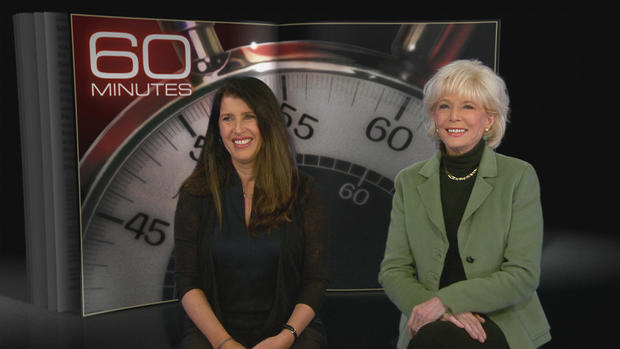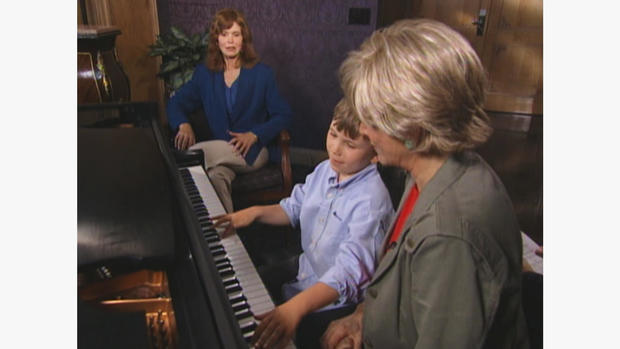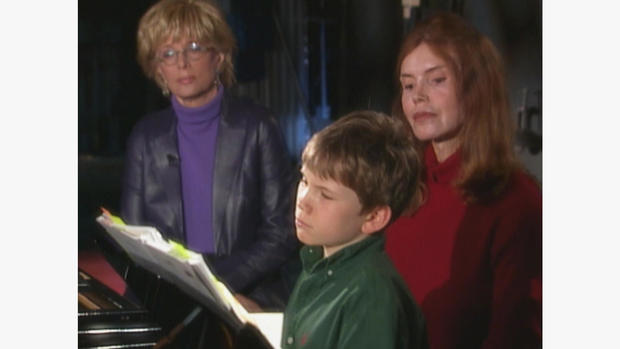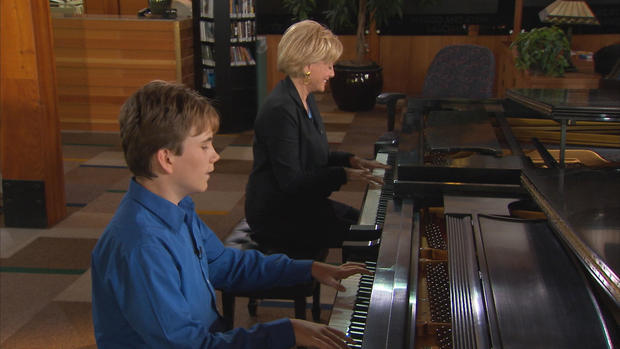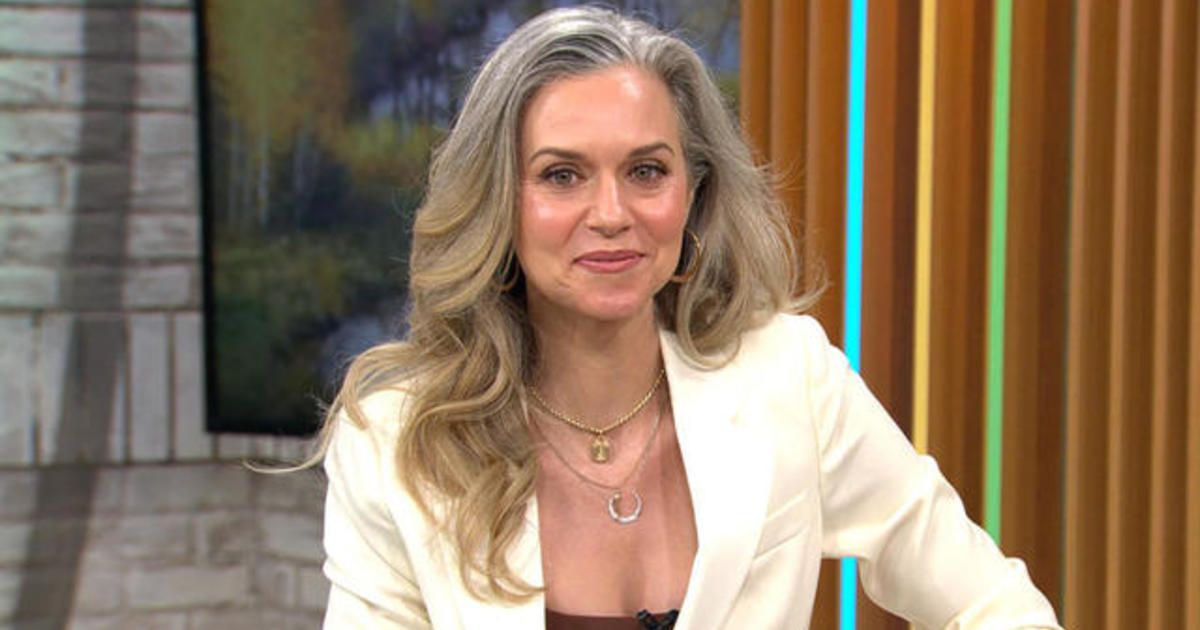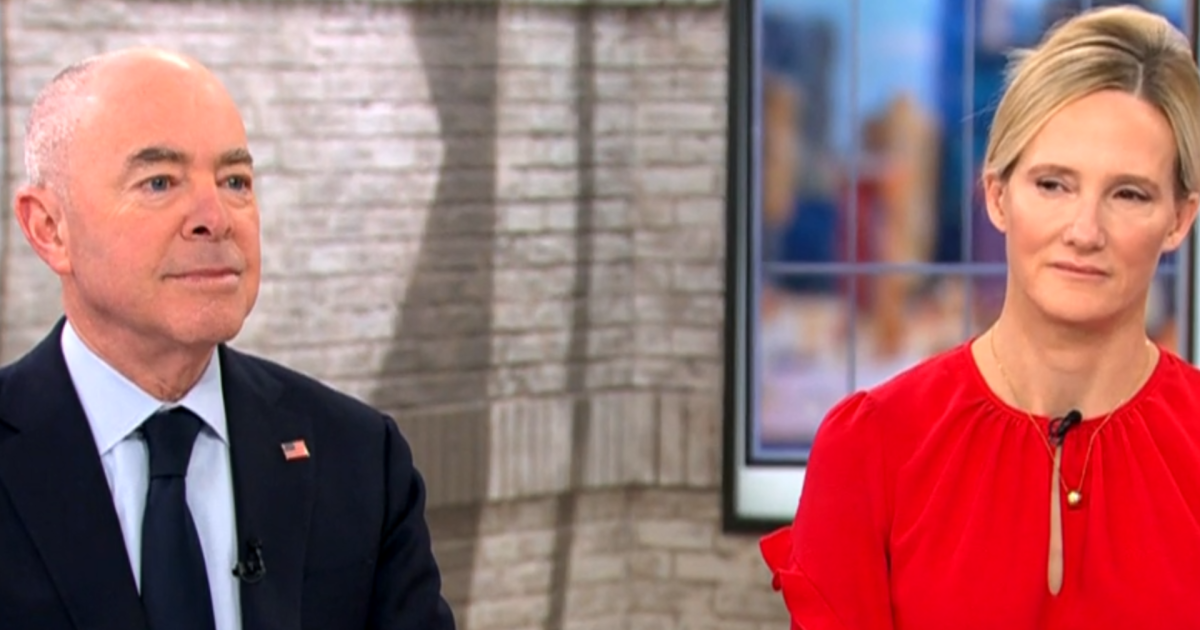The art of the 60 Minutes follow-up
When is it time to update a 60 Minutes story? After 22 years of producing for Lesley Stahl, Shari Finkelstein has it down to a science.
"She's not going to present a story to 60 Minutes where there hasn't been an interesting development," Stahl said of Finkelstein. "Not just a change—but an interesting change."
Finkelstein often stays in touch with subjects. When she feels their story has progressed to a new level, whether a scientific advancement or personal development, she and Stahl consider returning to tell the next chapter.
That is what the pair did this week with a group of researchers at Carnegie Mellon who are exploring the idea of reading people's minds through brain imaging.
Stahl and Finkelstein first reported on the team in 2009. At the time, neuroscientist Marcel Just and his colleagues were using functional MRI scanning to look at people's brains as they thought about simple objects, like a hammer or a screwdriver. By analyzing the levels of activity all across the brain, researchers were able to identify unique activation patterns for each object.
As the years went on, Finkelstein followed as Just and his team expanded the research to include activation patterns for more complex thoughts like emotions and abstract ideas. But it was not enough for a follow-up—yet.
"Then at a certain point, they took this sort of leap," Finkelstein said. Just began analyzing the brains of people who have autism, and later on, people contemplating suicide. When he found identifiable differences between those groups and control subjects, Finkelstein knew it was time for a fresh 60 Minutes report.
Sometimes when Stahl and Finkelstein revisit a story, it's because the person at its center is so compelling. That is what happened with a young boy named Rex Lewis-Clack.
Lewis-Clack was born blind, with a cyst in his brain. While he has profound cognitive disabilities, he has remarkable aptitude on the piano—skill that was evident from a very young age. Stahl and Finkelstein first met him when he was eight. They returned twice to report on him, once when he was 10, and again when he was 13.
"He was so adorable as a little boy," Stahl said. "What happens when that little boy grows up and he's not adorable anymore? Well, he was so talented he was still drawing audiences. And that was another part of why we wanted to go back."
Every once in a while, the developments that cause Stahl and Finkelstein to return grow out of their own story. In 2010, the pair reported on people with Highly Superior Autobiographical Memory, the extraordinarily rare ability to remember virtually every day of their lives. At the time, scientists knew of only six people who had it.
After the report aired, dozens of people came forward saying they too had that type of memory. Scientists were then able to confirm another 50 cases of Highly Superior Autobiographical Memory—but the story still needed to go further for 60 Minutes to return.
Then, scientists identified the phenomenon in a 10-year-old boy, enabling them to ask: When does this memory develop? Is it innate? That's when Stahl and Finkelstein followed up.
Stahl and Finkelstein both say viewers have given them positive feedback on their follow-up reports over the years. Many viewers say they wonder about what happens to people after 60 Minutes' cameras stop rolling. But curiosity alone does not warrant a return.
"We have to be convinced that they've progressed enough, that it would stand on its own as a fascinating 60 Minutes story," Stahl said.
To watch Lesley Stahl's report this week on mind reading through brain imaging, click here.
The video above was originally published on November 24, 2019 and produced by Brit McCandless Farmer and Sarah Shafer Prediger. Rebecca Chertok Gonsalves was the associate producer. It was edited by Sarah Shafer Prediger.
